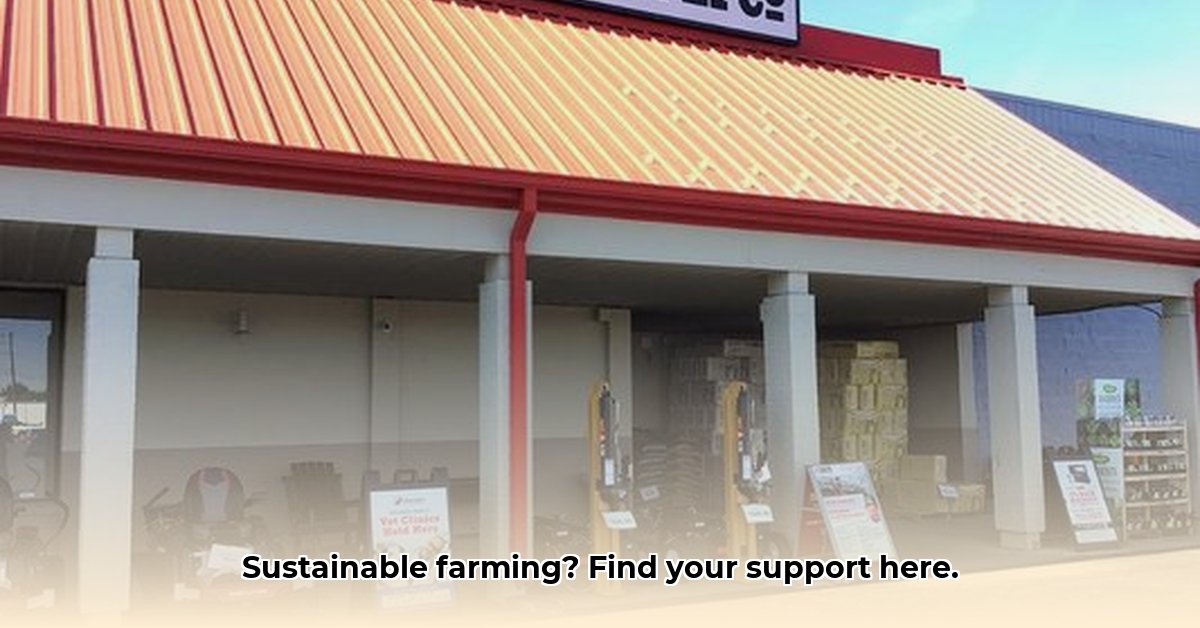
Tractor Supply Bellefontaine, Ohio: Assessing its Role in Sustainable Agriculture
Tractor Supply Company (TSC) plays a significant role in supplying agricultural needs in Bellefontaine, Ohio. However, definitively assessing its contribution to sustainable farming practices presents a considerable challenge due to a lack of readily available data. This article explores TSC's product offerings, analyzes the limitations of existing information, and suggests actionable steps to improve understanding and transparency. For comparison, see a similar store's sustainability efforts at this nearby location.
TSC's Product Offerings Relevant to Sustainable Agriculture
TSC's Bellefontaine location offers a wide array of products potentially relevant to sustainable agriculture. These include seeds (both conventional and potentially organic varieties), fertilizers (with varying formulations and potential sustainability certifications), animal feed (with varying compositions and sourcing), and various tools and equipment. However, the lack of clear labeling and readily accessible information regarding the sustainability of these products' sourcing and production hinders a conclusive assessment of their overall environmental impact. For example, while organic seeds are likely available, their percentage of total seed sales remains unknown, making it difficult to quantify TSC's contribution to organic farming in the region.
Assessing TSC's Impact on Sustainability: A Data Deficit
A critical gap exists in publicly available data concerning TSC's sustainability initiatives. There's no readily accessible information on the company's overall environmental footprint, supply chain transparency, or specific sustainability goals for the Bellefontaine location. This lack of transparency makes it impossible to provide a quantitative assessment of the store's contribution to sustainable agriculture. While TSC might offer products capable of supporting sustainable practices, the absence of concrete data prevents a comprehensive evaluation of its actual impact. A deeper dive into internal data and company initiatives is necessary for a complete picture.
Farmer Perspectives: An Unheard Voice
Understanding the role of TSC requires incorporating direct farmer feedback. Farmers' experiences with product availability, quality, and alignment with sustainable farming goals are paramount. While anecdotal evidence might exist, a systematic study involving surveys and interviews with farmers in the Bellefontaine area would provide crucial on-the-ground insights. This data is vital for a comprehensive and accurate assessment beyond speculation. Without this input, any analysis remains incomplete and potentially skewed.
Actionable Steps: Improving Transparency and Data Collection
Addressing the knowledge gap requires collaborative action from multiple stakeholders.
Farmer Engagement: Farmers in Bellefontaine should share their experiences with TSC, advocating for a wider selection of sustainable products and increased transparency on product sourcing. This could involve direct feedback, surveys, or organized initiatives.
TSC Transparency: TSC should proactively communicate its sustainability efforts (or lack thereof), including data on its supply chain, waste reduction initiatives, and plans for future improvements. A public report detailing sustainability initiatives would greatly enhance trust and accountability.
Independent Research: Independent research, funded potentially by environmental groups, could investigate the environmental impact of TSC's product offerings and supply chain in the Bellefontaine region, providing a verified and unbiased assessment. Such research would generate quantifiable data crucial for understanding the true impact.
Conclusion: The Need for Transparency and Data-Driven Assessments
While Tractor Supply Bellefontaine offers products potentially useful in sustainable agriculture, a definitive assessment of its actual impact remains elusive. The lack of readily available data concerning sustainability efforts, supply chain transparency, and farmer experiences creates a substantial knowledge gap. We have highlighted the urgent need for greater transparency from TSC, active engagement from local farmers, and independent research to fully understand and enhance TSC's role in supporting sustainable farming practices within the Bellefontaine community. Only through collaborative efforts and data-driven assessments can we move towards a truly sustainable future for agriculture in this region.